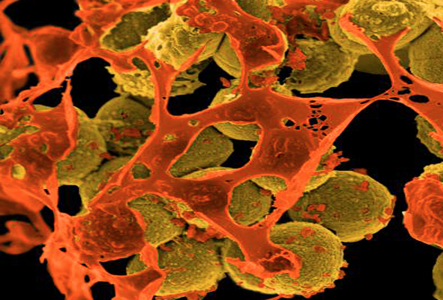By Ethan Covey
Secondary bloodstream infections (sBSIs) may pose a significant risk to patients with severe COVID-19, according to a Rutgers University study.

The study is the first to assess the microbiology, risk factors and outcomes among hospitalized patients with sBSIs and severe COVID-19 (Clin Infect Dis [Epub Nov 20, 2020]. doi.org/10.1093/cid/ciaa1748).
“In our clinical experience, we noticed anecdotal trends of secondary bloodstream infections in severely ill patients with COVID-19, which led us to conduct this study,” commented Navaneeth Narayanan, PharmD, a clinical associate professor in the Department of Pharmacy Practice and Administration at Rutgers University Ernest Mario School of Pharmacy, in Piscataway, N.J.
“COVID-19 is a novel disease, so our understanding of its complications and how to predict and manage these complications is limited; therefore, we need more rigorous data evaluating this.”
The researchers focused on 375 patients diagnosed with severe COVID-19 from March through May 2020 who were admitted to three different New Jersey hospitals. Among this group, 128 cases of sBSIs were diagnosed, 91.4% of which were bacterial and 5.5% were fungal.
Patients with sBSIs were more likely to have altered mental status, a lower percentage of oxygen saturation, septic shock and to be admitted to the ICU compared with those without sBSIs.
“These presenting symptoms could reflect either superimposed effect of the sBSI with severe COVID-19 or just a marker of critical illness due to COVID-19 itself,” said Pinki J. Bhatt, MD, an assistant professor in the Division of Infectious Diseases at Rutgers Robert Wood Johnson Medical School in New Brunswick, N.J. “I think this proves that further larger and prospective studies are needed to better assess how common sBSI are in patients diagnosed with severe COVID-19.”
The also team found that approximately 80% of patients received antimicrobials at some point while they were hospitalized, and, notably, many received antimicrobials despite having negative blood cultures.
“At the time, there was limited information regarding the natural course of the disease, and, thus, it likely prompted the clinician to give antimicrobials,” Bhatt said. “But we feel this supports the fact that antimicrobial stewardship is very important at this time to prevent adverse drug reactions, drug resistance and other infections, such as Clostridioides difficile.”
While the researchers noted that further study is needed to better understand the interrelationship of sBSIs and COVID-19, they agree the results help shed light on a previously unclear aspect of the disease.
“We believe our study adds valuable data from multiple hospitals across N.J. to better understand risk factors for developing secondary bloodstream infections in COVID-19 patients,” Narayanan said.
—The sources reported no relevant financial disclosures.




